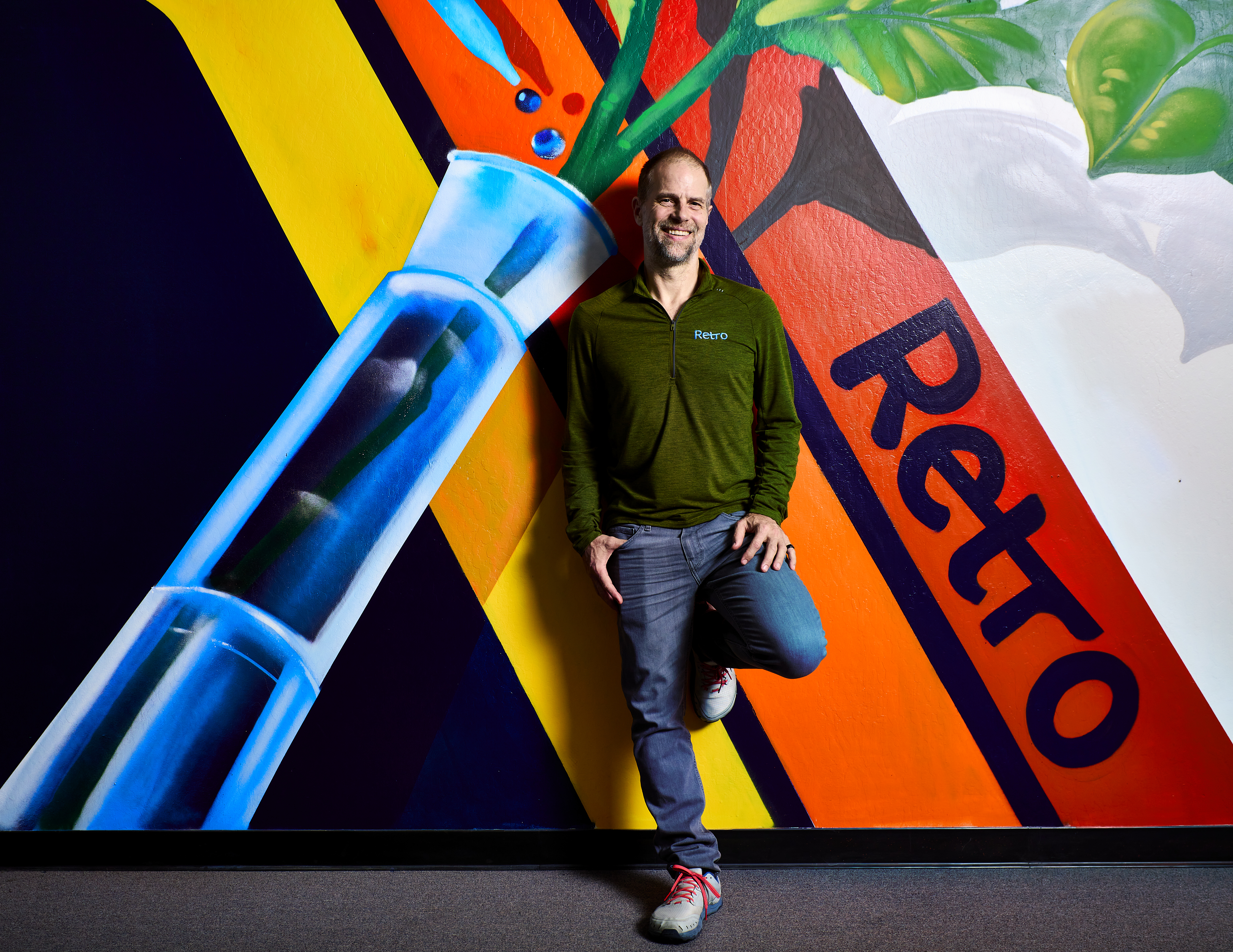What Would You Do with 10 Extra Years?
-
-
Slice of MIT
Filed Under
Recommended

Joe Betts-LaCroix SM ’92 hopes humans will live long and prosper enough to populate the universe. And the science behind his latest startup just might help us get there.
Retro Biosciences, started in 2021, aims to give humans 10 more healthy years of living by tackling the mechanisms behind a wide range of aging diseases, rather than merely treating symptoms of age. Retro is developing various techniques including cell reprogramming and the manipulation of processes involved in ridding the body of defunct cell organelles and metabolic byproducts—an important function that declines with aging.
“Presently, using the newest tools [in medicine], we are defending ourselves from threats faced by people in their 70s and 80s,” says Betts-LaCroix, Retro’s cofounder and CEO. “As our molecular [techniques] improve, we will be defending against threats arising in their 90s and 100s—inductively extending forward as biology advances.”
Retro Biosciences is Betts-LaCroix’s third venture-funded startup. In 2000, he cofounded OQO, which created the world’s smallest Windows computer—a precursor to today’s smartphones. After OQO’s sale to Google, he cofounded Vium in 2013, focused on automating in vivo research. Vium was sold to Recursion Pharmaceuticals in 2020. Betts-LaCroix worked for two and a half years as a partner at startup accelerator Y Combinator before launching Retro Biosciences.
The techs behind these three startups may not have much in common on the surface, but Betts-LaCroix promised himself early in his career that he would always follow interest over money—even if that led him far afield from whatever comfort zone he’d created for himself.
“If I choose the interesting thing and it doesn’t generate money, then my brain will still be alive and happy, which feels very important to me,” he says.
Luckily his interests tend toward technologies that capture the imaginations of investors. Maybe that’s because he could be considered a futurist, always contemplating where humanity is going and how he can help us get there.
“I think I was really heavily influenced by reading science fiction as a kid,” he says. “And one of science fiction’s functions is to hypothesize a scientific change and its impact on society.”
“I grew up swimming in this idea of ‘There’s a new world we’re creating, and it can be whatever we want, and it can be better. We can be kinder to each other.'
Betts-LaCroix started his innovation journey young, supported and encouraged by his parents. He turned the living room at his family’s home in Oregon into lab space, made an intercom system with his next-door friend, and covered his backyard with antennae for his ham radio shack—an amateur radio communication hub.
At Harvard, he majored in Earth sciences and concurrently completed a research fellowship in biophysics at Caltech. He wound up at MIT in the early 90s, ostensibly working toward a PhD in ocean chemistry. During his time in the Earth, atmospheric, and planetary sciences department, he assisted in a mission collecting a 2km-deep core from a Greenland ice sheet, traveled to the bottom of the Pacific in a three-person submarine built by his MIT colleagues, and developed an independently operating, ocean-water-sampling robot for his master’s project. But he became frustrated with the pace of academia and decided not to pursue a doctorate. Instead, he ventured out into the startup world, where he’s racked up 214 patents and three successful businesses so far.
He hopes the 10 extra healthy years afforded through Retro Bioscience’s advances will provide inspiration for people worldwide to strengthen their communities and improve upon the spaces they inhabit.
“[Today, some people might] think, ‘Well, I’m going to die in six months, I might as well just go out in a flame of glory and go on cruises or buy the fanciest thing that I can think of, consume more, spend all my money before I die,’” he says. “Part of what I imagine is that if they’re like, ‘Wow, I’m going to be around for another 20 years. I should make some choices that affect the world that I want to live in. I’m going to live here in this neighborhood for a long time, and I want to be a harmonious component of the community.’”
After all, achieving his dream of seeing humanity spread beyond the gravitational field of Earth will require not only long healthy lives, but also robust community-centered thinking.
“I grew up swimming in this idea of ‘There’s a new world we’re creating, and it can be whatever we want, and it can be better. We can be kinder to each other,’” he says. “Things can be so much better. Let’s build it.”







